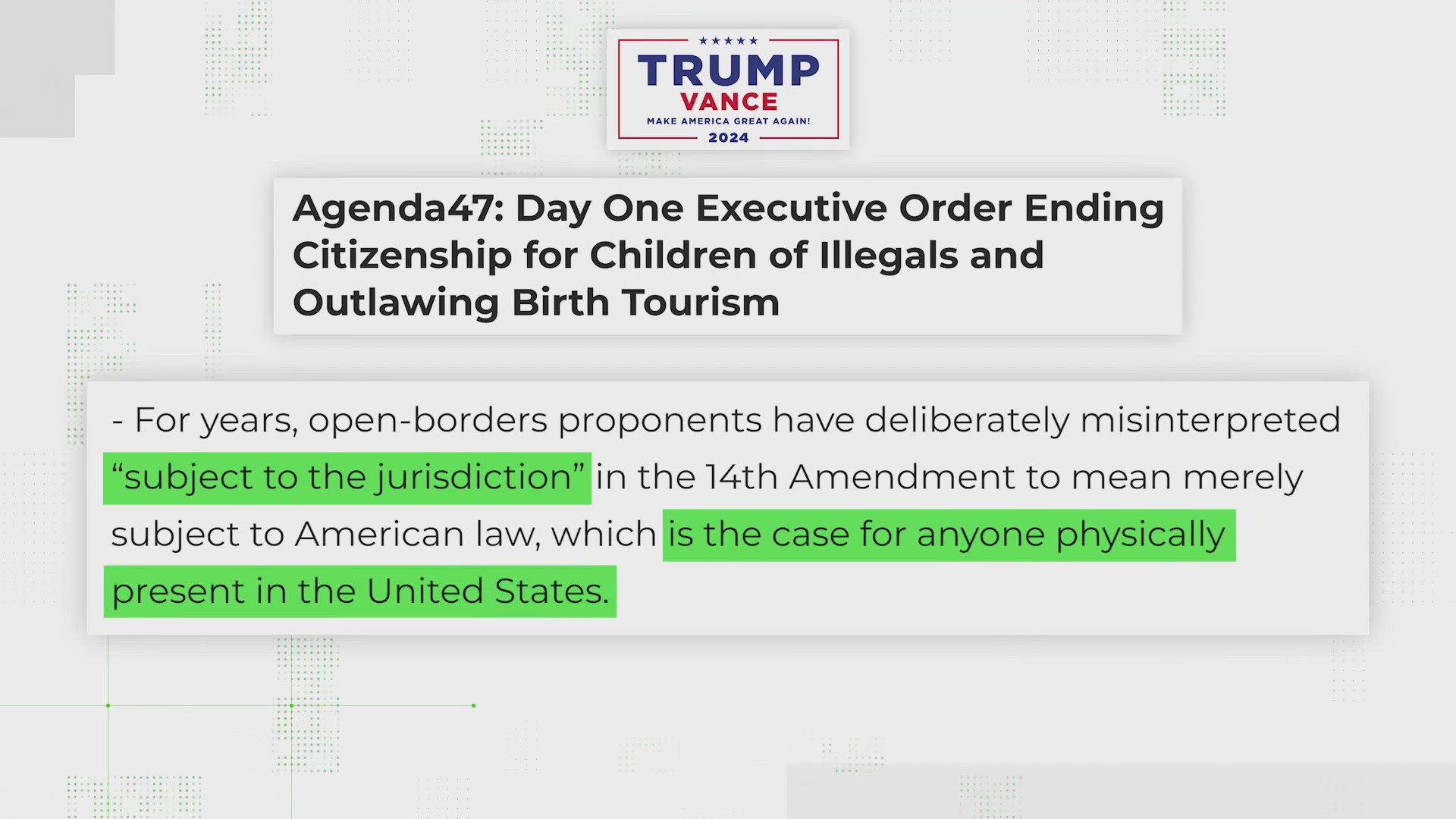CENTRAL, Texas — Donald Trump’s recent statement about ending birthright citizenship has reignited debate over a contentious immigration issue. On his Truth Social platform, the president-elect highlighted his intention to sign an executive order aimed at stopping children born to undocumented immigrants in the U.S. from automatically becoming American citizens. But can Trump truly make such a monumental change unilaterally?
What Is Birthright Citizenship?
Birthright citizenship is enshrined in the 14th Amendment of the U.S. Constitution, ratified in 1868. It declares:
"All persons born or naturalized in the United States, and subject to the jurisdiction thereof, are citizens of the United States."
This clause was initially designed to grant citizenship to formerly enslaved individuals and their descendants. Over the last century, legal interpretation has held that nearly everyone born in the U.S.—with few exceptions, such as children of foreign diplomats—is automatically a citizen.
Trump’s Argument
In his “Agenda 47” policy statement, Trump argues that the phrase “subject to the jurisdiction thereof” excludes children of undocumented immigrants. Based on this interpretation, he believes an executive order could direct federal agencies to restrict citizenship rights for these individuals.
This isn’t the first time Trump has floated this idea. During his first term, he made similar claims but ultimately did not issue an executive order.
The Legal Hurdles
Legal experts overwhelmingly agree that ending birthright citizenship through executive order would be unconstitutional.
Changing constitutional provisions, such as birthright citizenship, typically requires either a new constitutional amendment—an arduous process requiring ratification by at least 38 states—or a landmark Supreme Court decision.
Paul Ryan, in a 2018 interview with NPR, stated, “You cannot end birthright citizenship with an executive order… It would require a constitutional amendment.”
Even if Trump were to issue an executive order, it would likely face immediate legal challenges. Courts have consistently upheld the 14th Amendment’s broad interpretation, and any attempt to restrict it would trigger years of litigation.
Why It Matters
The debate over birthright citizenship isn’t just a legal issue; it’s also deeply political, touching on broader conversations about immigration and national identity. While Trump’s proposal appeals to his base, the likelihood of successfully implementing it remains slim.
Bottom Line
Can Donald Trump end birthright citizenship with an executive order? According to constitutional experts, no. The 14th Amendment’s protections are clear, and any attempt to circumvent them would almost certainly be struck down in court.
For more on this developing issue, follow our coverage and stay informed about potential updates as Trump prepares for his presidency.
More on KCENTV:

